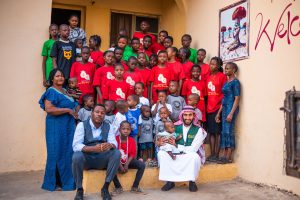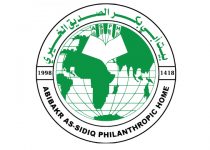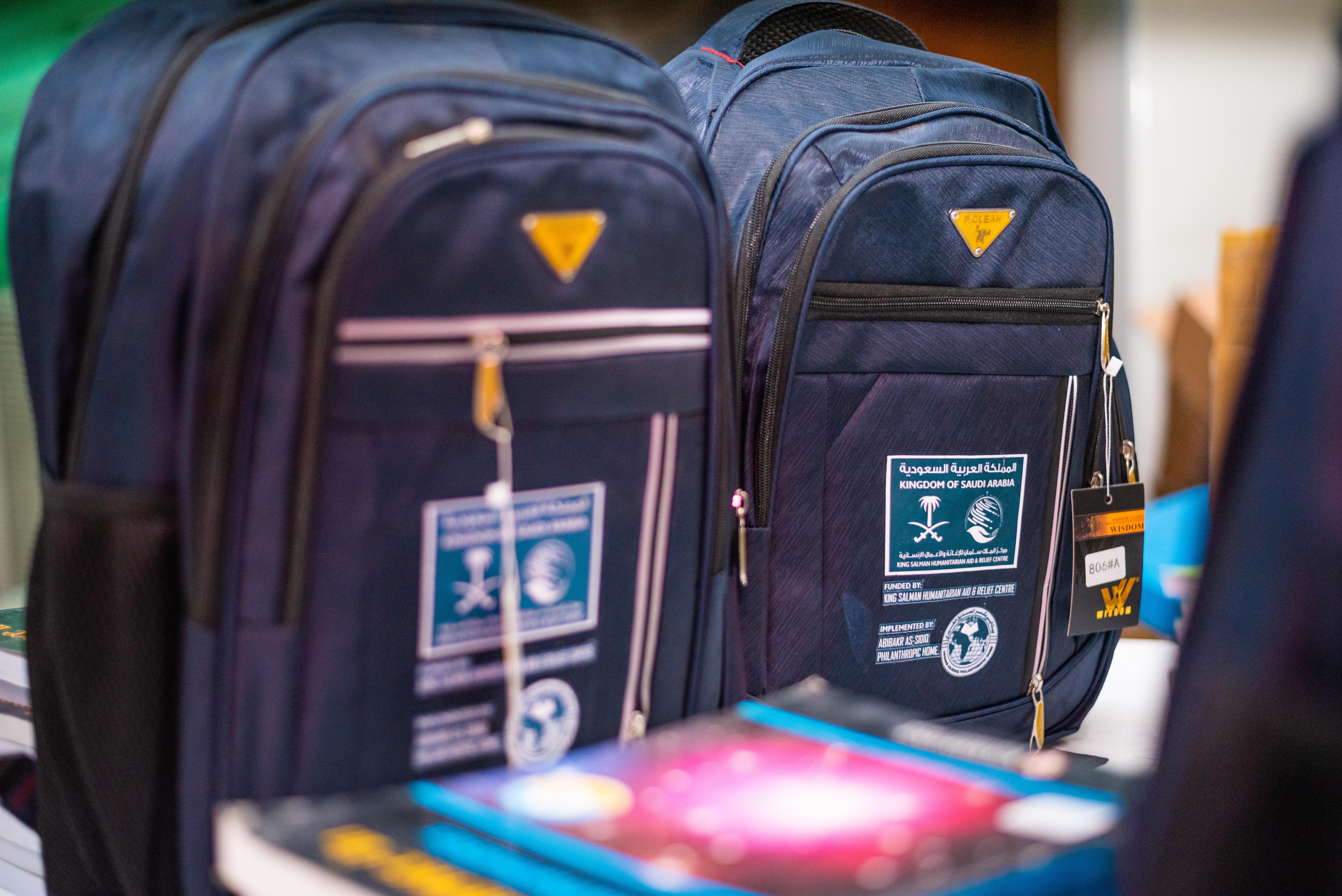
Ilorin, Kwara State, Nigeria – The sound of children’s laughter now rings through the halls of local orphanages, a sign of lives changing for the better. At one home, a boy excitedly flips through a new textbook while a girl proudly shoulders a brand-new backpack – simple moments that were rare just months ago. They are the result of an ambitious Orphan Support Project that has reached 55% implementation, bringing tangible hope to kids who need it most. Funded by the King Salman Humanitarian Aid and Relief Center (KSrelief) and implemented by the Abibakr As-Sidiq Philanthropic Home, the project is directly supporting 950 orphaned children across 10 orphanages in Kwara State. By providing food, education, healthcare, and psychosocial care, it has begun transforming orphanages into places of opportunity and healing.
A Lifeline for Kwara’s Orphans
Nigeria faces a serious orphan crisis – official figures estimate over 7 million children have lost one or both parents, and the true number could be even higher. In Kwara State alone, thousands of children grow up without parents or stable support. This project is a much-needed lifeline. Launched in late 2024 in Ilorin, it operates in collaboration with the Kwara State Ministry of Women Affairs and Social Development to ensure alignment with government child-welfare efforts. KSrelief – which supported 98 humanitarian projects across Nigeria in 2024 – provides the funding, while Abibakr As-Sidiq Philanthropic Home (a local NGO) leads implementation on the ground. Together, they’ve built a broad partnership network: three hospitals have signed on to deliver healthcare, three training centers are teaching catering, tailoring and IT skills, and a team of psychosocial support specialists is tending to the children’s emotional well-being.
“KSrelief has been a cornerstone of humanitarian efforts in Nigeria, funding projects that address critical needs in food security, health, education and early recovery,” notes Farid Salman, Chief Operating Officer of Abibakr Home. The Orphan Support Project exemplifies that mission. Originally planned to reach 950 orphans after verifying the status of those in need. Through verified orphanages and local authorities, these children are now receiving shelter, nutrition, medical care, education and counseling under one comprehensive program. “It’s a joint mission for social development,” an organizer explained – every partner plays a role in giving these kids a chance at a better life.
Halfway Milestone: Tangible Progress
Now at the halfway mark, the project reports clear progress on multiple fronts. In just a few months, a range of supportive activities have been rolled out to improve the children’s daily lives and future prospects. Key achievements so far include:
- Identifying those in need: Over 800 orphaned children have been verified (registered with proper documentation) to ensure aid reaches the right beneficiaries across all 10 orphanages. This thorough verification builds transparency and trust, laying the groundwork for effective support.
- Feeding and nutrition: A first round of food distribution has been completed, delivering roughly 10 tons of staple foods to the orphanages. Bags of rice, beans, cassava flour, cooking oil and other essentials now stock the pantries of each home. This means hundreds of children are assured of regular, nutritious meals – a fundamental need that can no longer be taken for granted.
- Education support: Removing barriers to schooling is a top priority. The project has paid one full term of school fees for every school-age orphan (with two more terms to be covered in the coming months). Children who once might have missed class for lack of fees are now back in the classroom consistently. Additionally, the project supplied a wealth of learning materials – including 1,000 new textbooks and 5,000 exercise books – to ignite these young minds. About 500 quality school bags were distributed to kids who lacked them (around 300 other children already had school bags). Today, nearly all 950 children walk to school with proper uniforms, bags, and books in hand, ready to learn.
- Vocational training: Beyond formal education, older orphans are gaining practical skills for self-reliance. Sixty teenagers (ages ~17–18) have enrolled in ongoing catering, tailoring, and ICT courses at three partner training centers, learning trades like tailoring, cooking, and computer basics. By the project’s end, up to 150 youths will receive craft and digital skills training – an investment to help them earn a living when they age out of the orphanages. Many of these teens are already showing newfound confidence as they master marketable skills.
- Healthcare access: To safeguard the children’s health, the project established a cash-in-credit arrangement with three hospitals. In practice, this means if an orphan is sick, orphanage staff can get them treated at a partner hospital immediately, without worrying about upfront payment. The hospital bills are covered by the project later. This innovative approach ensures no child is denied care due to cost – a critical support in a country where medical expenses can be prohibitive. Common illnesses are being treated promptly, and chronic conditions are managed better, giving caregivers and children peace of mind.
This blend of relief and empowerment activities means that children who once faced hunger, illness, and despair are now experiencing stability and growth. “The difference is night and day,” says one orphanage matron, describing how attendance in school has shot up and health complaints have dwindled among her wards. Kids are not only eating better and learning skills, but also laughing, playing, and dreaming about the future again.
“We Can’t Lose Momentum”: Impact and Way Forward
The transformative impact of the project so far is evident in the beaming faces of the children and the gratitude of caregivers. Farid Salman, the Chief Operating Officer of Abibakr As-Sidiq Philanthropic Home, puts it in perspective: “We see positive changes every day in these children’s lives. It’s not just about the food or school fees – it’s about restoring their hope and dignity,” he said in an interview, highlighting the human dimension behind the aid. “But with the project only halfway done, we can’t lose momentum now. The urgency to reach every one of these 950 orphans is very real, because their futures depend partly on our continued support.”
Project staff echo this resolve. They describe the second half of the project as just as critical as the first. In the coming months, the plan is to press ahead on all fronts: fund the remaining two school terms for each child, expand the vocational training to reach the full 150-youth target, conduct further food distributions to keep pantry stores full, and maintain the healthcare and counseling services without interruption. Each component addresses a vital need, and together they form a safety net that will follow these children into adulthood.
There is also an eye on sustainability. The inclusion of vocational and ICT training is already preparing the older teens for life beyond the orphanage. Some are expected to graduate into jobs or apprenticeships by the project’s end – a step that could break the cycle of poverty for good. Likewise, orphanage managers are receiving guidance on financial planning and child care best practices, so that the improvements can carry on independently when the project winds down.
As the Orphan Support Project marches toward 100% completion, an air of optimism persists. What began as a bold collaboration between a Saudi relief agency and a Nigerian NGO is blossoming into a grassroots success story. The upcoming documentary and regular progress reports will shine a light on these successes, but also remind the public that help is still needed to get to the finish line. For now, at the halfway mark, the project stands as a testament to compassion and coordinated action – proof that with the right support, even the most vulnerable children can overcome hardship and look toward a brighter future. Each smile and each success story in Kwara’s orphanages is a powerful reminder of what can be achieved when communities and partners come together to put hope within reach of every child.



